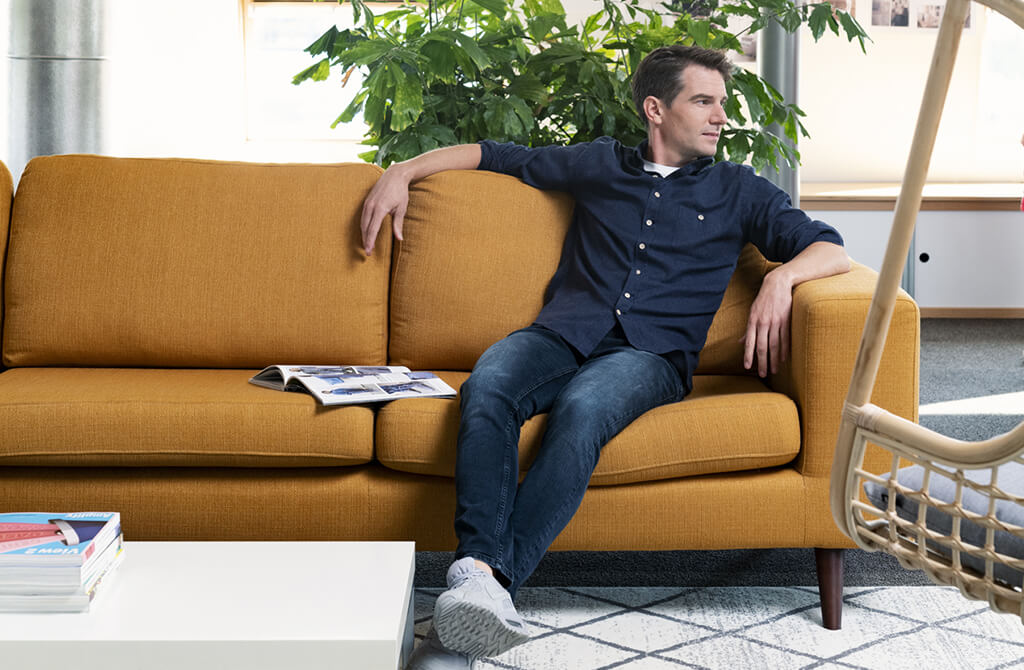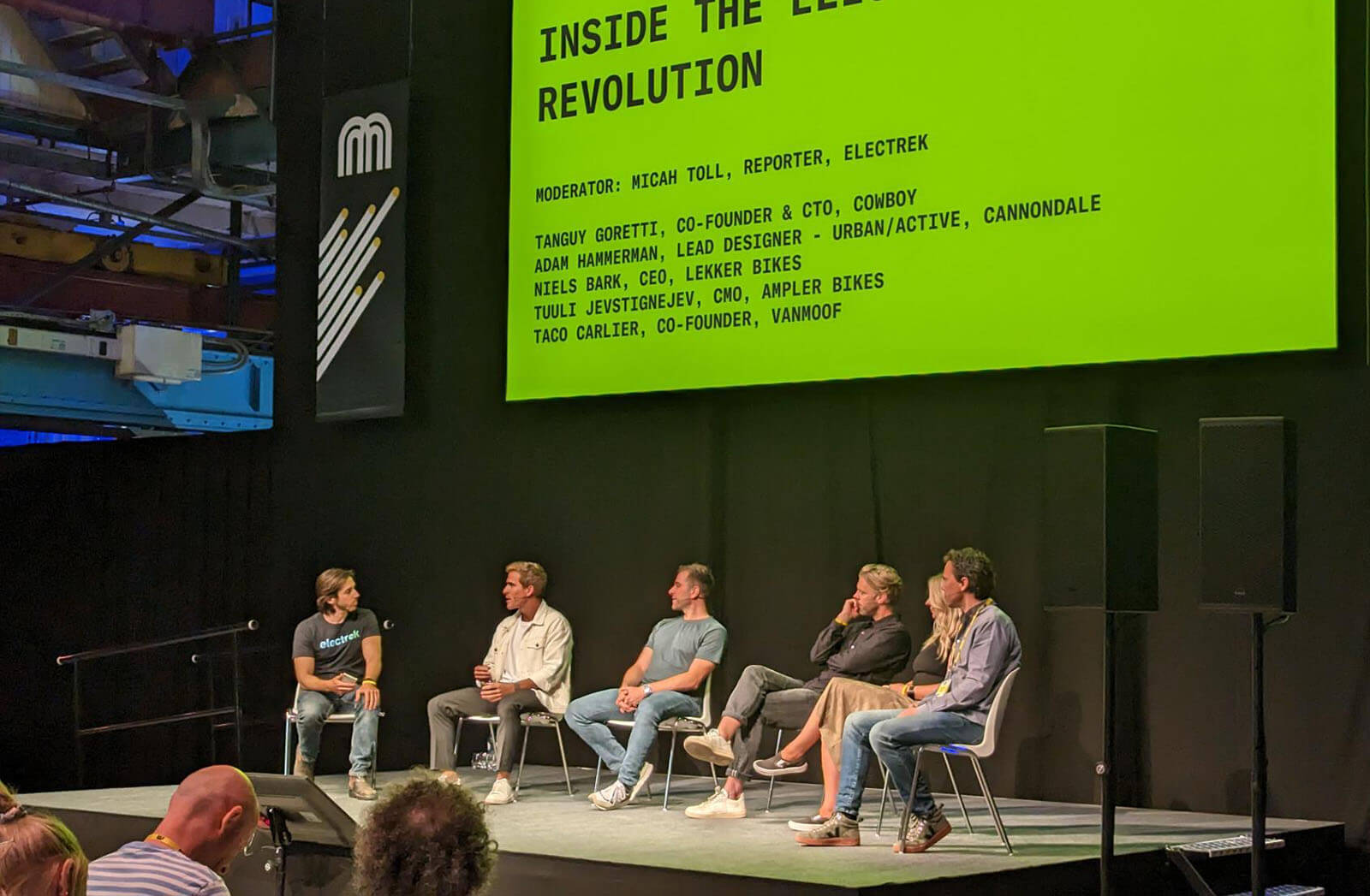Inspired by: Kevin Mayne
For our second installment of our Inspired By series, we sat down virtually with Kevin Mayne, the Chief Executive at Cycling Industries Europe. Although, we both would have rather caught up over a good ride instead of a coffee over video, connecting Brussels and Geldermalsen.
Like most of us in mobility, Kevin caught the bug young, telling us his family was what you’d call a ‘cycling family’ in the UK. He has memories of waking up sleepily in the car while his dad set off on an early morning race, and his mom, one of the few female racers at the time, leading the pack on family tours. For Kevin, racing was always just there, leading him to race himself and even become president of his own university’s cycling club.

But for years, cycling was just a hobby as he climbed the ladder in the food industry. “It is the absolute classic of when you see the job of a lifetime advertised, you go for it,” Kevin admitted. “You say nevermind the company car or pension schemes. That is my job! I have to apply.” Now, 20 years after taking that job as the Director of the UK’s national cyclists’ organization, he’s worked on both the citizen and consumer side of the bike industry.
Where we pick up our conversation, Kevin Mayne tells us that now he is doing some of the most exciting and important work of his career. We go on to talk about how cycling is transforming cities, the opportunities Covid-19 has provided for the bike industry and society and the adoption of the e-bike.
Well, it must have been interesting in your career being on both sides of the industry — seeing the consumer and industry angle.
Yeah, and cycling is very strange in the sense that the industrial lobby almost stood back for 30-40 years and let the consumer lobby take the lead, which wasn’t normal for the mobility industry as a whole. But, they did really important work and that we’re respectful of today.
But now it is important there is representation from the industry side of things, too. At the end of the day, governments are economic institutions. So it’s hugely important that behind the voices of cyclists are the voices of cycling companies because they’re the job creators, innovators, technologists, the designers. Especially right now amidst the Covid-19 economic crisis, our voice is being sought out.
Representation is also key for industrial collaboration. There’s been a lot of industrial collaboration in our industry in terms of customer supplier. But cross company, and what I would call cross sectoral collaboration, has not been as strong. And we look at other transportation industries like automotive, aviation, freight or shipping, and even though they are ferociously competitive, there are situations when they say, “We must go forward together.” And that’s particularly true with emerging connected services and sustainability, which we also need to consider in the bike industry.

CIE says they want to change the way we move. On a personal level, why is that so important to you?
Let’s subtract the passion. There’s a level on which I know how good this is for my family, my friends and my city. But on a purely pragmatic or political level, it just works. You can see the effect in livability. You can see the effects on health and inequality. I’m very passionate about children’s freedom. The ability to move around their cities, like the Dutch kids, with ease and limited supervision. I think of my own son, and we would have never given him the space in a British city to do what his Dutch peers are doing because of road safety. So, we’re trying to reframe cities.
But changing the way we move is also about creating opportunities. For example, we are working with mountain districts to see that if ski resorts are not economic, because of lack of snow, e-biking could stimulate that economy and keep tourists coming and connecting to nature. Mountain biking and cycle tourism and the arrival of the e-bike makes mountains not so scary anymore.
At CIE you say that you want to make cycling a key part of the sustainable urban mobility transition, specifically under the EU Green Deal. Why is biking such an important component of future sustainability in Europe?
I love the concept in Paris of the 15-minute city — that you can do everything within 15-minutes of where you live. And for me, large scale car-free zones, making sure commuters don’t need a car, is imperative. That they can get on a shared bike instead is key. But besides the carbon footprint and air quality, the underlying efficiency of the bike is space. Parking 12,000 bikes under the station is so much more efficient than parking 12,000 cars. E-bikes will play an important role transitioning away from the car as well.

Tell me about that. How do you think the e-bike is going to change biking? It’s taken a few years to really catch on, but now the momentum is really there now.
“Well it’s interesting because I think what we’ve really done is moved through the early adoption e-bike stage. Early on, it was you can go farther or faster, with just a little interest emerging from a sports mindset. And early adopters are often more tech-interested.” Said Kevin Mayne.
But now, if you’re at 50% of the market in a country, you’re appealing to everybody. And I believe the e-bike is really making cycling more accessible. It’s more slow cyclists rather than fast cyclists. It’s people who have not bought an e-bike to do 25km an hour, but to do 12km an hour easily — not sweating, in their day clothes and talking to friends. And even more so in Covid, it has become even more clear from the statistics that the boom has been a recreation-led boom.

While e-biking is making biking more accessible, isn’t cost still a factor?
The first point we can always say, compared to a car, is that this is peanuts. And in that sense, what is exciting is seeing e-bikes appearing in leasing schemes alongside cars. Here in Belgium, now you can get an e-bike loan in the same portal you would lease a car. That access to finance decisions and options will make an e-bike more affordable and accessible. But, I do worry we talk too much about making bikes cheaper, because it does drag you down into competing on price rather than quality.
The second thing is, from a European level, there are the less developed markets where people are more inclined to buy a €100 bike, and jumping to a €3,000 euro bike is only going to happen when someone is passionate about cycling. “So, we believe in those cities and countries, e-bike sharing programs are going to be a much better way to stimulate the market.” Concludes Kevin Mayne
How do you think that bicycle design plays into changing the way we move?
This goes right back to the question of, who are the new cyclists? From my point of view, we need to move away from bike history, because we value certain riding positions or certain aerodynamics. Design has the opportunity to make the experience feel natural and intuitive and accessible for new riders. And even with the e-bike that has felt more exclusive.
Also in terms of design, to me, brands are going to go towards integration. They’ll be able to see that their riding customer has gone 5,000 kilometers and be able to ping them to come replace their tires or upgrade to the next model. So, it’s working that technology and digital components into the bike. It’s about being ahead of the consumer and anticipating their needs. Because they don’t really expect to take care of their bike like a car. So, we have to smooth that process for these newer cyclists.
So as the Chief Executive, what are your biggest goals? What’s next?
I feel like I spent 20 years training for last year. There was this major disruption and we had to help our members navigate it. But, there were also opportunities that have emerged with governments that are huge. And I think there’s a new mood within the industry, as well as externally, which provides so much potential for growth. “And the next two years are pivotal for that.” Said Kevin Mayne.
Covid has given us an extraordinary opportunity to do things differently. It has given us amazing political access we might not have had. Overwhelmingly people say, “What have you got? Bring us your solutions.” This hunt for new ways of doing things is incredibly exciting. And we’re taking a 200-year-old technology and saying we are right up to date. Anything you want. You want connected, cargo, electric, we’re ready!
But we do have to be ready, because we will have challenges — like supply chain and making sure we are sustainable. And importantly, if the biking experience turns out to be poor, people will slip back their old ways. This is a lifetime opportunity to fundamentally create change.
Be sure to connect with Kevin Mayne on LinkedIn.

